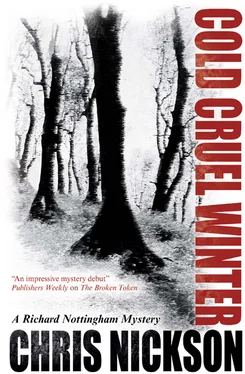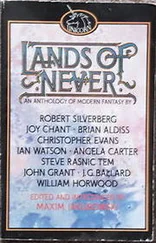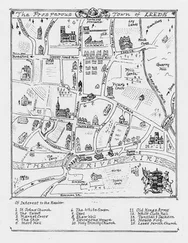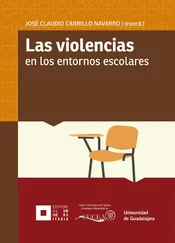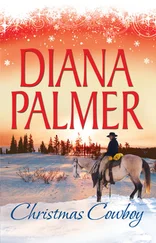Chris Nickson - Cold Cruel Winter
Здесь есть возможность читать онлайн «Chris Nickson - Cold Cruel Winter» весь текст электронной книги совершенно бесплатно (целиком полную версию без сокращений). В некоторых случаях можно слушать аудио, скачать через торрент в формате fb2 и присутствует краткое содержание. Жанр: Исторический детектив, на английском языке. Описание произведения, (предисловие) а так же отзывы посетителей доступны на портале библиотеки ЛибКат.
- Название:Cold Cruel Winter
- Автор:
- Жанр:
- Год:неизвестен
- ISBN:нет данных
- Рейтинг книги:3 / 5. Голосов: 1
-
Избранное:Добавить в избранное
- Отзывы:
-
Ваша оценка:
- 60
- 1
- 2
- 3
- 4
- 5
Cold Cruel Winter: краткое содержание, описание и аннотация
Предлагаем к чтению аннотацию, описание, краткое содержание или предисловие (зависит от того, что написал сам автор книги «Cold Cruel Winter»). Если вы не нашли необходимую информацию о книге — напишите в комментариях, мы постараемся отыскать её.
Cold Cruel Winter — читать онлайн бесплатно полную книгу (весь текст) целиком
Ниже представлен текст книги, разбитый по страницам. Система сохранения места последней прочитанной страницы, позволяет с удобством читать онлайн бесплатно книгу «Cold Cruel Winter», без необходимости каждый раз заново искать на чём Вы остановились. Поставьте закладку, и сможете в любой момент перейти на страницу, на которой закончили чтение.
Интервал:
Закладка:
He was still scribbling when the door opened, forcing in a hard rush of bitter air, and Sedgwick entered, shaking a few flakes of snow from his hair.
‘It’s started again,’ he complained, taking off his coat and standing close to the fire, holding out his hands as if to grasp its warmth.
‘What did you manage to find at the inn?’ Nottingham asked.
‘Graves was booked for Friday’s coach, but he never got on it. Paid for his seat, too, so they were surprised when he never took it.’ He rubbed his palms together. ‘He used to take the coach every two months, they said, and he’d always been punctual.’
‘What time did the coach leave on Friday?’
‘It was a little late — supposed to go at ten, but it was almost eleven when it finally got off. There’d been a problem with one of the wheels, and they had to repair it before they could leave.’
Nottingham looked at the deputy. ‘Did anyone see Graves on Friday morning?’
‘Maybe, they’re not sure.’ He shrugged helplessly. ‘You know what it’s like there when there’s a coach, boss. It’s always madness for a few minutes. Then they had to take care of the wheel and the passengers. A couple of the men say they might have seen him, but they’re not sure; no one’s going to swear to it, they were all too busy.’
‘What about strangers?’
Sedgwick gave a hopeless smile. ‘I tried that one, too. Between the travellers and the gawkers, they’re all strangers. No faces anyone remembered.’
The Constable sighed. He hadn’t truly expected much, but he’d hoped for something. He thought for a moment, then said, ‘John, go down to Graves’s warehouse. I was there earlier. They don’t seem to know much, but try asking them about anyone who’s been sacked.’
Sedgwick nodded and gathered up his wet coat, which was just beginning to steam in the heat, then left.
Nottingham needed to speak to the widow Graves again. It was never easy, cajoling the bereaved into the past, the last place they wanted to visit, picking and probing at wounds that were still fresh. But he knew it had to be done. Give them a day, that was the way he’d been taught, just long enough to dull the first shock but while things were still clear.
Once again the widow received him in the sitting room, the fire a bright, roaring blaze. She looked as if she hadn’t slept, eyes rimmed red, her skin pale and waxy. She glanced up as he entered, staring not so much at him as through him, as if he were a ghost, without substance, and she was straining to see the reality.
‘I’m sorry to have to come again,’ he began, not even sure she’d heard him. Her old hand was curled tight around an embroidered linen handkerchief as if it was a rope that could save her.
‘I know this is a difficult time,’ he continued gently, watching the blankness of her face. ‘I need to ask you some more questions, so I can try and find the man who killed your husband.’
At the last two words she looked up sharply.
‘He’s dead, though, isn’t he? You told me that yourself. Nothing I say is going to bring him back.’ Her voice was distant, speaking through the haze of a thousand memories.
‘No,’ he admitted, ‘but it might bring him justice.’
She returned to her lost silence. He tried again, kneeling by her chair so his face was level with hers.
‘You said he didn’t have any enemies, Mrs Graves. But someone killed him, something happened to cause that. Is there anything you can think of, anything at all? It doesn’t matter how long ago.’ He realized he sounded as if he was pleading, but it didn’t matter. He needed information, the tiny scraps from the table of Graves’s life.
‘I know he was a good man, but I’m sure my husband wasn’t always a saint in his work.’ She spoke slowly, sadly. ‘He never really talked about his business at home, but I know there were times he must have cheated and stolen a little. He didn’t tell me, of course, but it was obvious. That was years ago, though.’ She glanced at him, her eyes suddenly focused, her voice sharper as the words began to rush from her mouth.
‘I know he had some sort of feud with George Williamson for a while. Do you remember him, Tom Williamson’s father? He died a couple of years ago. And I’m sure that from time to time Samuel had to dismiss men who worked for him, but he never talked about that with me, and it wasn’t my place to know. He didn’t play cards often, he rarely gambled, as far as I know he didn’t have any debts, and he wasn’t interested enough in women to keep a mistress.’
‘I see,’ was the only way he could respond to her candour.
‘What I mean, Mr Nottingham, is that I really don’t know of any reason someone would kill my husband.’ She paused, letting her thoughts collect. ‘If he’d been worried about anything, I’d have known it; after so many years, you can tell without words. He seemed hopeful. He’d been going to London regularly for a few months. All I know is that he was negotiating for a contract of some sort.’ Her eyes opened wider. ‘I suppose if we’d had a son, he’d have followed Samuel into his business, but we only had girls. He’d talked about taking on an apprentice or a partner for years, but he’d never done it.’
The Constable nodded. Girls, he thought. Just like himself. Girl now.
‘Is there anything else?’ she asked, her mood suddenly imperious.
‘No,’ he told her. ‘No, there’s nothing.’
She didn’t attempt a courteous smile. ‘Then, please, leave me now. I really don’t think there’s anything more I can do to help you.’
Four
He’d trimmed the paper to the right size, carefully tearing the sheets. He’d prepared his words, a rough draft written on fragments that he’d gathered in a pile and were now ready for a fair copy.
The rough table was uneven and he steadied it with a shim of wood under one leg. As he sat he tested it, nodding approvingly when it barely moved. He inspected the quill, pleased with its sharpness, then dipped it into the pot of ink. He breathed deeply before making the first mark on the paper.
Every man has a tale to tell, or so they always say. This is mine, the story of one who has been wronged by life. It is a tale that needs to be told, for people to hear, a tale I have kept in for far too long. Now, though, in this cruel winter, it is time for me to sit and write this. I have been maligned, but I have stood tall always, and now these are the days of my revenge.
I am not a Leeds man by birth. I came here later, seeking work and finding it. I was a clerk, I knew my letters and my sums, and I had a fair hand. I still do, as you can see. Leeds held opportunity for someone like me.
I was born in Dronfield. It is a place few people know, little more than a piece of dust on a map of the kingdom. The village itself is in Derbyshire, six miles from Chesterfield, a city famed only for its market and the crooked spire of its church, and not so far from Sheffield. Dronfield was a mean place during my childhood, the stone houses cold and damp, the inhabitants poor and low-spirited. My father was a labourer, my mother a laundress to the vicar and his family.
I suppose I should be grateful for that connection, as it helped me gain an education. I was intelligent, precocious and eager. If I had been otherwise no doubt I would still be there, passing a scythe over a field or wasted away to my death.
But the vicar saw my talents, and in his good, Christian way, wanted to encourage them. It was through him that I was able to go to the Fanshawe School, founded by no less a man than one of Good Queen Bess’s courtiers. A haughty man by all accounts, his name in all the beneficence in the area.
I was the ragged one in a class full of those from good homes, with their refined manners and good clothes. They disliked me for that, cruel as all children are. But once it was evident that I outshone them in the classroom, they shunned me. When they did deign to speak, they taunted me, pinched me, hurt me. My lot was to be cleverer than they, and they didn’t like that in such an urchin.
Читать дальшеИнтервал:
Закладка:
Похожие книги на «Cold Cruel Winter»
Представляем Вашему вниманию похожие книги на «Cold Cruel Winter» списком для выбора. Мы отобрали схожую по названию и смыслу литературу в надежде предоставить читателям больше вариантов отыскать новые, интересные, ещё непрочитанные произведения.
Обсуждение, отзывы о книге «Cold Cruel Winter» и просто собственные мнения читателей. Оставьте ваши комментарии, напишите, что Вы думаете о произведении, его смысле или главных героях. Укажите что конкретно понравилось, а что нет, и почему Вы так считаете.
